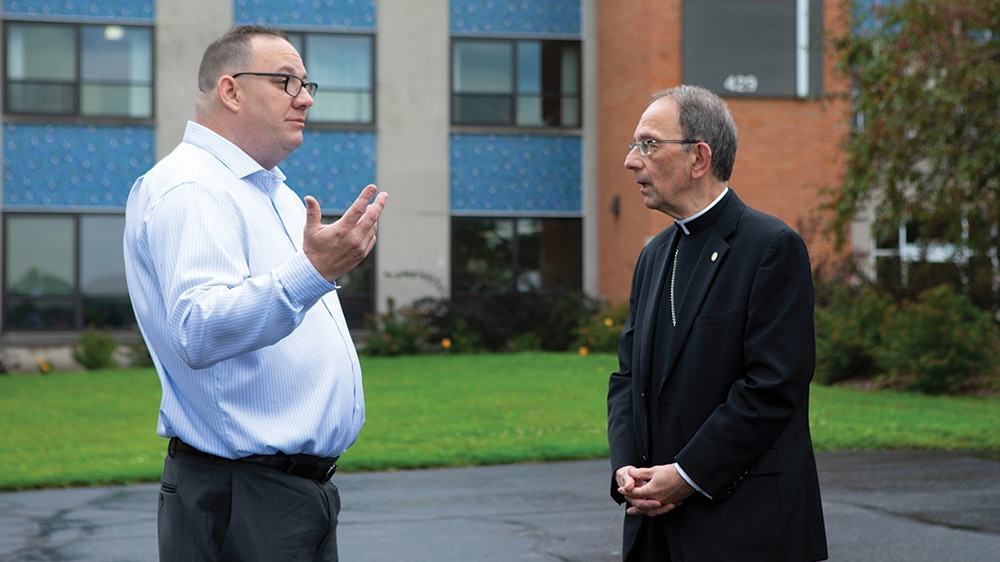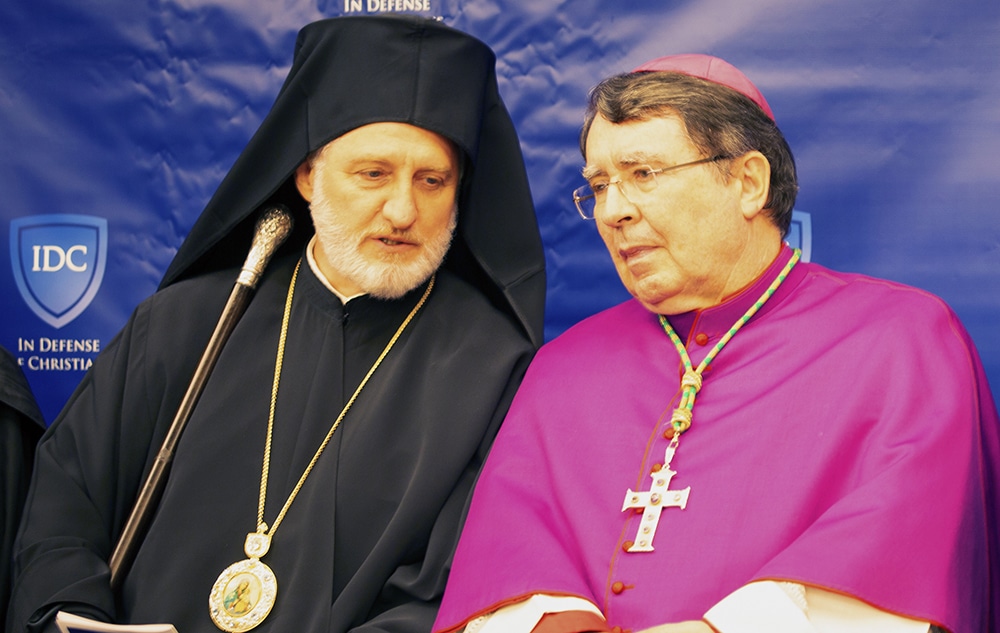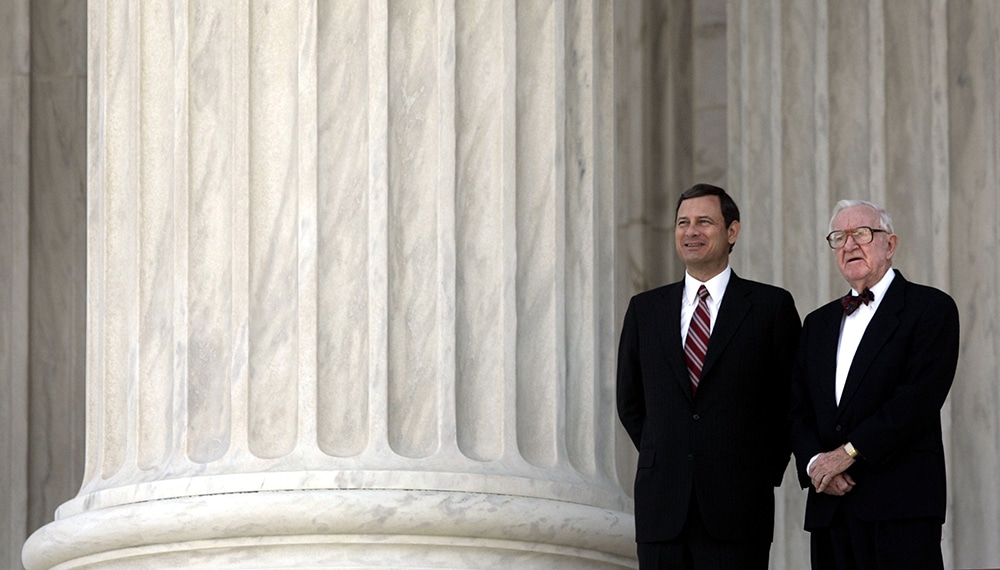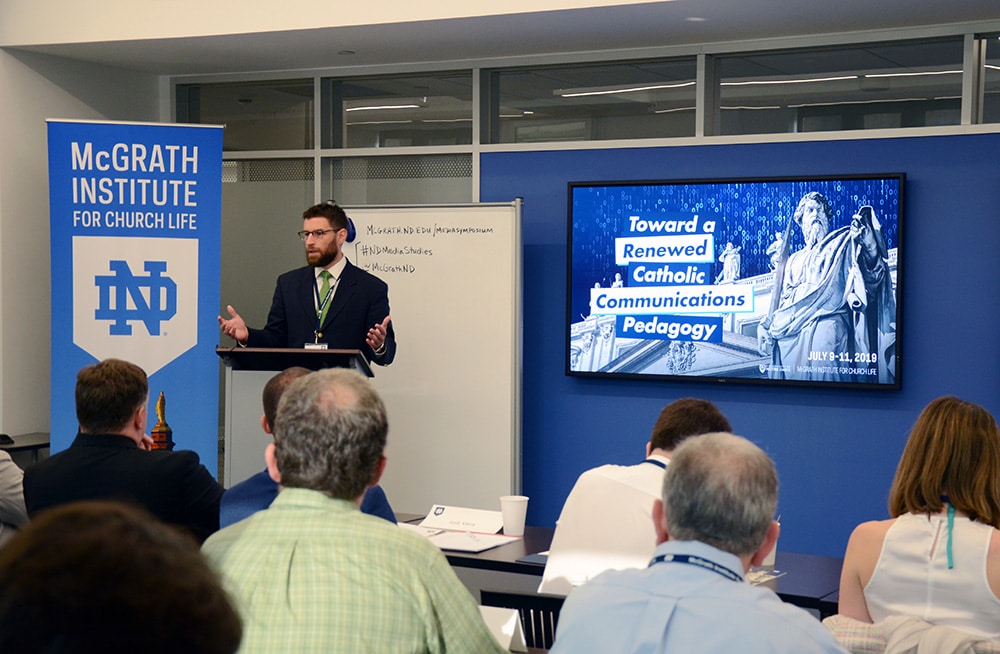Across the country, people are opening up their homes and becoming foster parents for migrant children who entered the United States unaccompanied by an adult and with no one willing to sponsor them.
And in many of those cases, a network of Catholic and other Christian social service agencies are working with the U.S. Conference of Catholic Bishops to place unaccompanied migrant children and refugee minors in safe home environments.
“The benefit of them being in our care is that they are able to have a second chance at life despite the circumstances that they came from,” said Chanica Brown, the program director of the St. Jerome Emiliani Foster Care program, which is operated by Catholic Charities for the Archdiocese of Galveston-Houston.
Brown told Our Sunday Visitor that anywhere from 50 to 75 migrant and refugee children in a given year will be referred to her foster care program, which provides the youths with a range of emotional and social support services, including the opportunity to continue their education.
“We try very hard to provide them with as much normalcy as possible despite the fact that they are technically in foster care,” Brown said.
Agencies
The U.S. Conference of Catholic Bishops is one of two lead national agencies — the other is Lutheran Immigration Refugee Services — that works with the federal government to place migrant and refugee children in foster care for whom family reunification is not possible.
“It’s a real important program because it provides a way to make sure that the children who are here are in a safe environment if their sponsorship falls apart,” said Ashley Feasley, the director of migration policy and public affairs at the U.S. Conference of Catholic Bishops.
The bishops conference arranges foster care for children whom the federal government has classified as refugee minors. Those minors tend to be older — most are over 15 — lived in refugee camps outside the United States and have no adult relatives in the country.
“Most of their parents have been killed,” said Dana Anderson, the director of the unaccompanied refugee minor foster care program for Bethany Christian Services, a social services agency that operates child foster care programs in multiple states.
Unaccompanied refugee minors, Anderson told OSV, usually live with their foster families for many years, integrating themselves into those families and becoming part of the local communities.
“Refugee children are long-term foster care children,” Anderson said. “They’re not able to return to their country of origin. They enter into the United States as a refugee and they work toward getting their green card.”
Foster care needs
Meanwhile, hundreds of thousands of young migrants, most of them from Central America, in recent years have crossed the United States’ southern border without an adult. That has strained the federal government’s resources and created a foster care need for child migrants who do not have any adult relatives or sponsors in the country.
“It’s important for people to know that our clients are kids, and that no matter where they came from, no matter what their circumstances were, they are still children and youths in need of our help,” Brown said.
Over the last several weeks, the care and custody of migrant youths has been a leading national news story. Congressional leaders, immigration attorneys and advocates and others have provided firsthand accounts of migrant children being detained in deplorable conditions inside overcrowded Border Patrol facilities. The U.S. bishops have decried the reported inhumane conditions, saying that they “shock the conscience and demand immediate action.”
“We always want to make sure that children are not in a Border Patrol facility longer than what they need to be,” said Feasley, who added that those facilities were designed and built several years ago to detain single, working-age men.
“So, having children and families in these facilities is really problematic,” Feasley said.
Part of the problem, Feasley said, relates to policy changes implemented by the Trump administration. Since last summer, the federal government has been conducting background checks and fingerprinting prospective sponsors of migrant children and arresting some of those people for immigration violations. That has discouraged many adults from coming forward for the children, causing them to remain in federal custody for longer periods of time.
“We strongly advocate for the safe but rapid release of children to their approved sponsors, families and guardians,” said Feasley, adding that reuniting migrant children with their parents and guardians is better for the minors’ well-being and more cost-effective for U.S. taxpayers than keeping them in detention centers.
Crossing the border
When an unaccompanied minor crosses the border without legal documents and is approached by a U.S. Customs and Border Protection agent, the child is supposed to be in the custody of the U.S. Department of Homeland Security for no more than 72 hours. If the minor is from Mexico or Canada, they are brought to one of those nations’ consulates unless the child has a legitimate fear for their safety or if there is reason to believe the child has been trafficked.
The U.S. Department of Health and Human Services, through the Office of Refugee Resettlement (ORR), is tasked with gathering information about the child and determining if they have family and sponsors in the United States. The U.S. bishops’ conference works with ORR to unite those kids with sponsors or place them in foster care while they have pending cases in the nation’s immigration courts.
Officials told OSV that most — more than 90% — of unaccompanied migrant children will eventually be united with parents or legal guardians in the United States, so even if they are placed in foster care, it will be temporary.
“It’s a shorter stay, so we make sure our foster parents have a very clear understanding that those kids will not be in their home for a long period of time,” said Anderson, of Bethany Christian Services.
Foster families
Anderson said the foster families’ responsibility is to make sure the migrant children feel safe and cared for while they are in the program. The families undergo training to help the children cope with trauma that they experienced in their countries of origin and during their journey to the United States.
“We also offer counseling services and therapy to help (the children) understand boundaries, how to keep themselves safe and how to work through difficult memories they have from the past so those things they’ve experienced don’t negatively impact them for the remainder of their life,” Anderson said.
Katie Kuennen, director of children’s services for the U.S. Conference of Catholic Bishops’ Office of Migration and Refugee Services, told OSV, that in recent years, caseworkers have seen an increase in foster care referrals for unaccompanied migrant children from Central America who were victims of human trafficking.
“Those kids have no safe return options and no viable family reunification options,” said Kuennen, who added that the bishops conference is continually looking to recruit foster parents who are open to the diverse group of children that could be placed in their care. Kuennen said she also has seen an increased interest in people willing to be foster parents for refugee minors and unaccompanied minors.
“There has been a tremendous overwhelmingly positive response in individuals coming forward to assist children and offer their homes,” she said.
News reports about the plight of migrant children, especially those in government detention centers, often motivate people to contact the social service agencies and inquire about the possibility of becoming foster parents.
“We definitely see folks calling in to express their concern for the children and asking how they can help in any way possible,” Anderson said. “We not only need foster parents, but we also need volunteers and people who can step forward in many different ways, including as mentors and tutors. But we definitely see the public respond.”
Brian Fraga is a contributing editor for Our Sunday Visitor.
| Foster care for unaccompanied children |
|---|
|
The U.S. Conference of Catholic Bishops department of Migration and Refugee Services (MRS) is a leader in providing placement and care for unaccompanied, refugee and immigrant children. With support from the U.S. Department of Health and Human Services and U.S. Department of State, MRS provides a continuum of care through its collaboration with a national network of 12 state licensed Unaccompanied Refugee Minor (URM) foster care programs. Consider becoming a foster parent to an unaccompanied refugee or immigrant minor. The URM foster care programs are separate from domestic foster care programs in that they have been developed by agencies with expertise in working with foreign-born children. Foster families are oriented toward the particular needs of refugee and immigrant children. Contact your local Catholic Charities affiliate to find out about local foster care needs and material and volunteer opportunities to support immigrant children and families in your area. |







